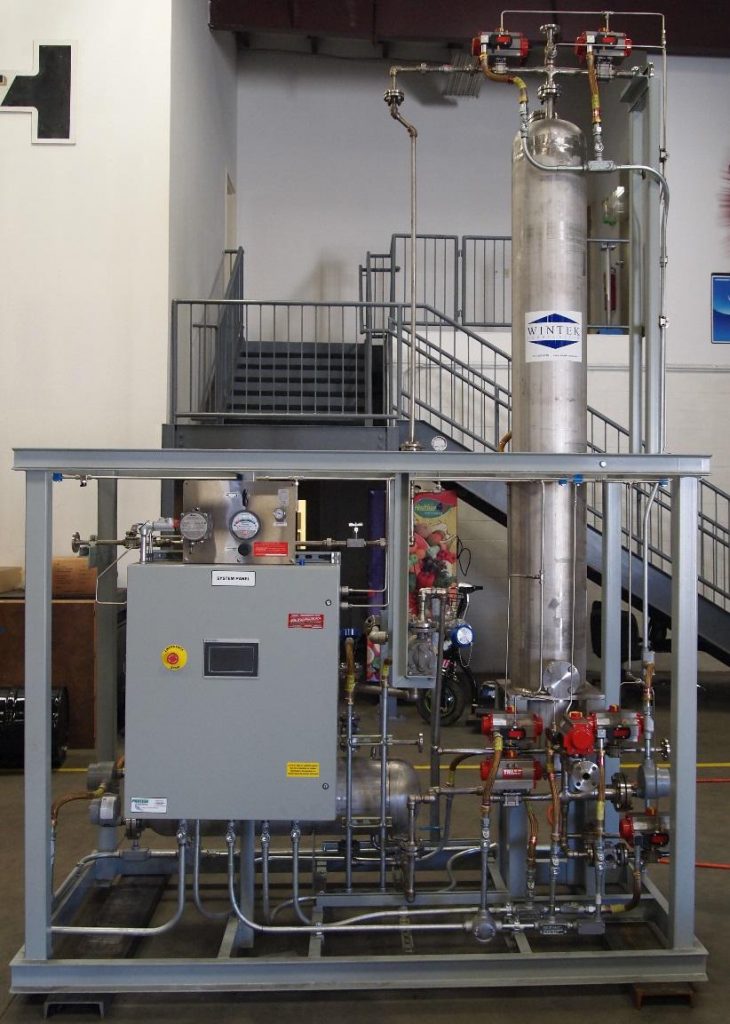
Liquid Phase Molecular Sieve Dehydration Unit
Isopropyl alcohol (C3H8O or CH3CHOHCH3 or (CH3)2CHOH) dissolves a wide range of non-polar compounds. In addition, it evaporates quickly, leaving nearly zero oil traces compared to ethanol. Compared to other solvents, IPA is also relatively non-toxic. Thus, it is widely used as a solvent and as a cleaning fluid, especially for dissolving oils.
Isopropyl alcohol (IPA) is miscible in water and forms an azeotrope. The azeotrope exists at a composition that is 91% IPA by volume and 9% water. Hence, simple distillation cannot achieve dryness levels below this.
However, isopropyl alcohol dehydration via molecular sieves has proven an effective means of drying IPA beyond the azeotrope.
Molecular sieves rely on the difference in molecular size between the solvent and water to achieve separation. IPA has a molecular size of ~16Å, and water has a molecular size of 2.6Å. A 3Å or 4Å molecular sieve adsorbs water while allowing the IPA to pass through the bed because of the difference in size. The molecular sieve beads then undergo a regeneration step that removes adsorbed water. The sieves then remove more water when wet IPA passes through during the next dehydration cycle.
Wintek designs and builds Isopropyl Alcohol Dehydration (IPA) MSDUs (both Liquid Phase and Vapor Phase) depending upon the incoming water concentration and outgoing dryness requirements.
